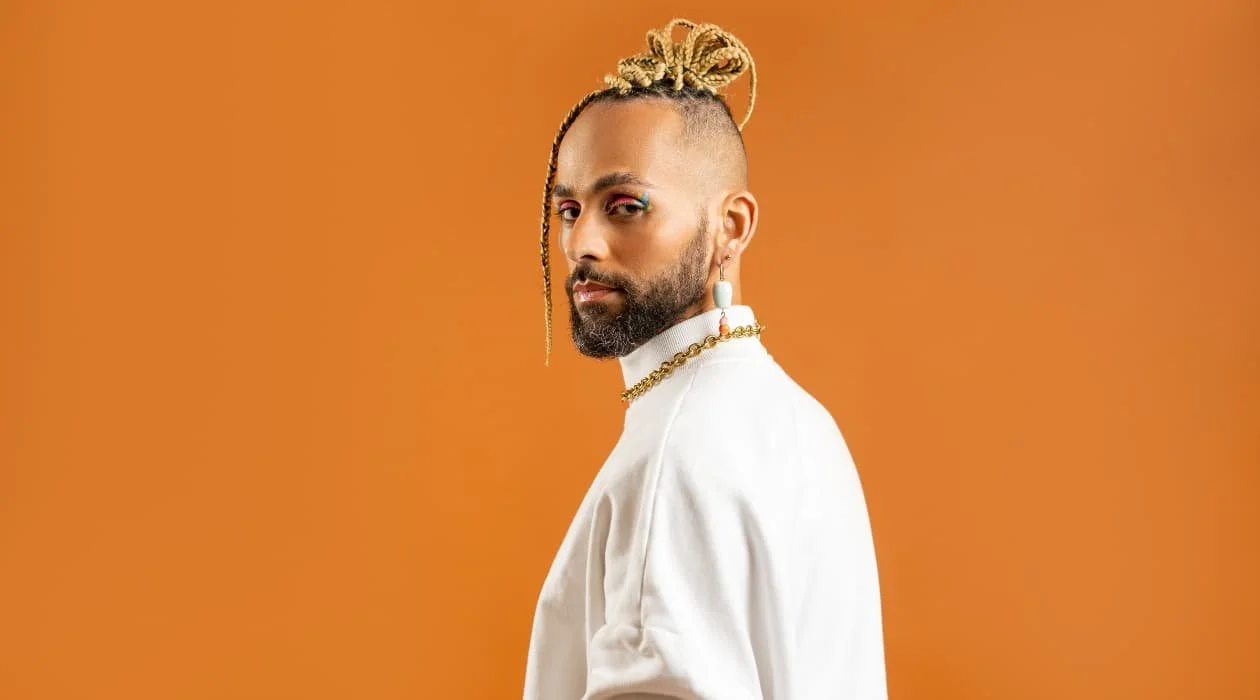Is There a "Right" Way to Be Gay?
Imagine being told there's only one way to express your identity. Sounds ridiculous, right?
Yet, many gay men feel pressured to fit a stereotype that doesn't represent who they truly are.
Let's shatter the myth of the "right" way to be gay and celebrate the diversity within our community.
In this short read, we'll explore:
The harmful impact of gay stereotypes on mental health
How intersectionality shapes our experiences
Steps to embrace your authentic self
Whether you're questioning if you're "gay enough" or simply curious about the diversity of gay experiences, this post is for you.
Ready to challenge your beliefs about being gay? Let's dive in.
The Myth of the Monolithic Gay Experience
We've heard the stereotypes: the party enthusiast, the fitness fanatic, the fashionista.
These one-dimensional caricatures misrepresent us and harm our mental health.
As Dan Levy, creator of "Schitt's Creek," aptly put it:
“Authenticity I think is the greatest gift that you have, and you are the only person who has it because nobody else is you. Always be yourself… never be swayed by other people's expectations or what you think people want.”
Research from the American Journal of Men's Health suggests that gay men under pressure to conform to these stereotypes experience higher anxiety and depression.
Action Step:
Write down three aspects of your personality that don't align with the "typical gay stereotype."
Embrace these as unique parts of your identity.
The Intersectionality of Gay Identity
Being gay isn't just one thing; it intersects with every other aspect of our identity.
Your race, class, body type, and other factors shape your experience as a gay man.
Another study found that gay men of color face challenges related to their racial and sexual identities.
These lead to discrimination and marginalization that impact their mental health.
Reflection Question:
How do other aspects of your identity intersect with your sexuality?
How has this shaped your experiences?
The Pressure of "Performing" Gayness
Many gay men feel pressure to be accepted by the community, so they "act gay enough."
This performance can be exhausting and detrimental to our mental health.
It's a form of code-switching that can disconnect us from our authentic selves while sometimes necessary for safety.
Read this article from Vice to understand code-switching in the LGBTQ+ context.
Challenge:
For a week, resist the urge to "perform" your sexuality.
Notice how this affects your interactions and sense of self.
Breaking Free from Internalized Stereotypes
Internalized homophobia isn't just about shame.
It's also about the stereotypes we've internalized about being gay.
These internalized beliefs can limit our self-expression and life choices.
Exercise:
Identify one internalized stereotype you hold about gay men.
Where did this belief come from? How has it limited you?
Creating Your Gay Narrative
We can create our own narratives instead of fitting into pre-existing ones.
This isn't about rejecting gay culture but mindfully choosing which aspects resonate with us.
Take inspiration from Alok Vaid-Menon, a gender non-conforming writer and performer.
They've carved out a unique space in the queer community, challenging traditional notions of gender and sexuality.
As they once said,
"One of the good things about not being represented is you get permission to create your entire own journey and path."
This captures Alok's perspective on the freedom and power of not being confined by societal expectations.
It allows space to author one's own identity and existence.
Prompt:
Describe your ideal "gay life."
Don't censor yourself. Let it be as conventional or unconventional as you like.
The Impact of Media Representation
Media representation shapes our perceptions of gay identity.
Despite progress with shows like "Pose" and "Queer Eye," many mainstream depictions still rely on outdated stereotypes.
A 2021 GLAAD study found that LGBTQ+ TV representation is increasing.
However, it noted that LGBTQ character representation often leaned toward specific stereotypes and did not capture the community's diversity.
This limited representation can make it harder for gay men to envision diverse ways of being.
Action Step:
Seek media showcasing diverse gay experiences.
Support creators who are pushing for nuanced representation.
Building a Community That Celebrates Diversity
True inclusivity in the gay community means celebrating all our differences, not just our shared sexuality.
This diversity is our strength, allowing us to challenge societal norms and expectations.
Action Step:
Seek gay spaces or media that celebrate diverse expressions of gay identity.
If you can't find them, consider creating one!
Seeking Support in Identity Exploration
Professional support can be invaluable in unpacking these complex issues.
Therapy can provide a safe space to explore your identity, challenge internalized stereotypes, and develop coping strategies for societal pressures.
It can help you process discrimination or rejection within and outside the LGBTQ+ community.
Remember, seeking help is a sign of strength, not weakness.
Investing in your mental health through therapy, support groups, or community resources is crucial for personal growth and embracing your identity with confidence and pride.
Final Thoughts
There's no single 'right' way to be gay.
Your journey is uniquely yours, shaped by the complexities of your identity.
Rejecting limiting stereotypes and embracing our authentic selves improves our mental health and creates a richer community for everyone.
Let's celebrate our differences, support each other's journeys, and show the world the true meaning of pride – the pride of being authentically ourselves.
Want to talk?
If you want to explore your sexual identity or need support, I offer private online sessions for gay men. Book a session or reply to this email for more information.
Recommended reading
The Velvet Rage: Overcoming the Pain of Growing Up Gay in a Straight Man’s World by Alan Downs (read my review here)
Boy Erased: A Memoir by Garrard ConleyTimeline
Coming Out to Play by Robbie Rogers and Eric Marcus
Straight Jacket: Overcoming Society’s Legacy of Gay Shame by Matthew Todd


